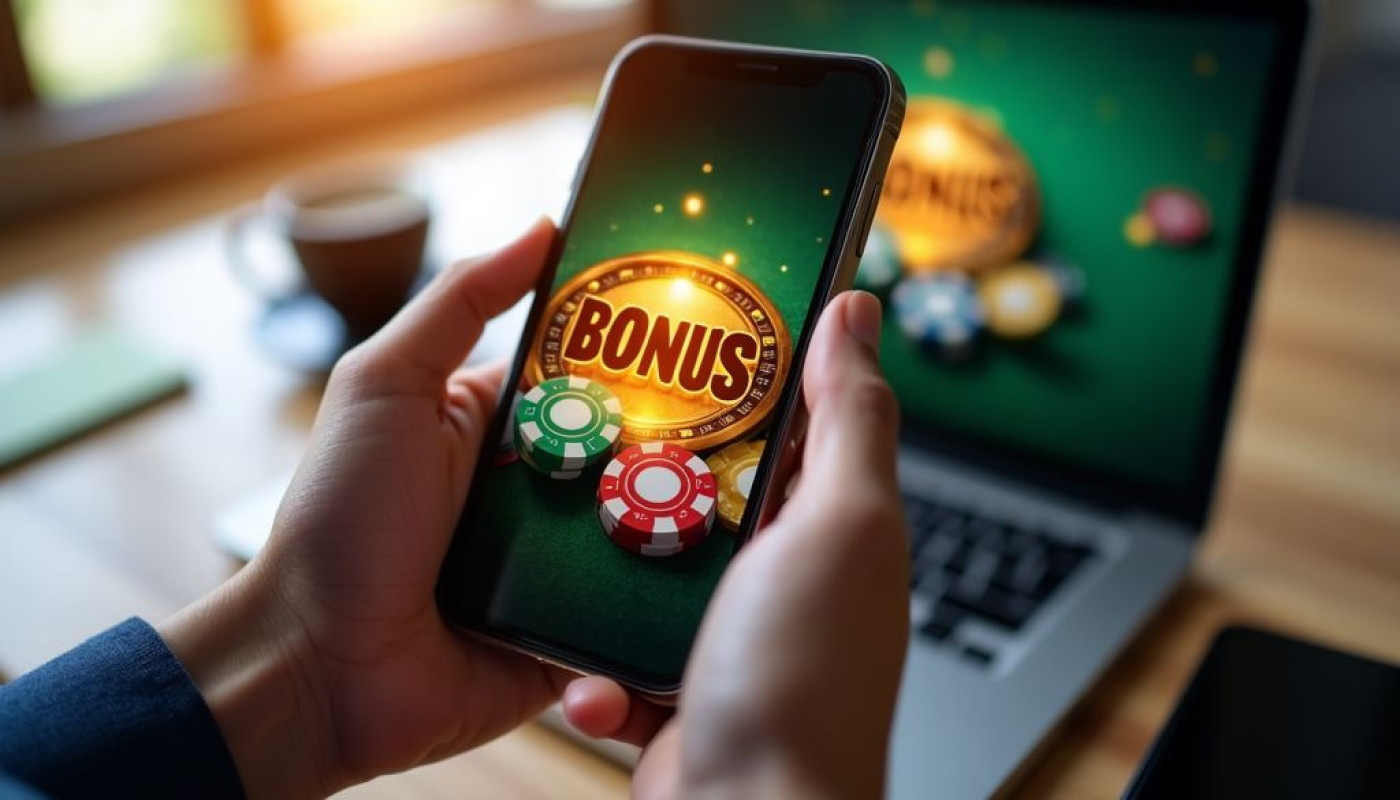Table of contents
Delve into the fascinating world of gambling, a realm where risk and reward dance a delicate tango in the minds of many. The allure of casino games is undeniable; they offer a potent mixture of thrill, strategy, and the tantalizing possibility of hitting the jackpot. But what psychological mechanisms drive us to place bets and revel in the suspense of a game of chance? This exploration seeks to demystify the magnetic appeal of gambling and understand the reasons behind our love for casino games. From the psychological triggers to the highs and lows of the gaming experience, the following sections will unfold the layers of this compelling topic. Whether you're a seasoned gambler or simply curious about the phenomenon, these insights are poised to enhance your understanding of the casino world and its enduring charm. Engage with the intricacies of the human psyche as we embark on a journey to dissect why these games continue to captivate and entertain.
The Psychological Allure of Gambling
The enticement of gambling lies deep within the human psyche, interwoven with a multitude of psychological factors that draw individuals to the thrill of the casino floor. At the heart of this allure is the excitement of risk-taking—a fundamental aspect of human behavior that stimulates the brain’s reward system, providing a rush of dopamine akin to that derived from survival-oriented behaviors of our ancestors. This intrinsic craving for risk is magnified in the realm of competition in gambling, where the desire to outwit or outlast others taps into our innate competitive nature.
Social gambling also plays a pivotal role, as it fosters a sense of community and camaraderie among participants, turning an otherwise solitary pursuit into a collective experience. Within this social framework, the illusion of control is a persuasive force. Many gamblers believe they can exert influence over the outcome of a game, a fallacy that keeps them engaged despite the odds. Perhaps the most binding psychological thread is the impact of intermittent reinforcement. The variable-ratio reinforcement schedule, where rewards are given at unpredictable intervals, creates a powerful reinforcement loop, potent enough to dominate the rational understanding of probability and chance, urging players to continue in the hope of the next big win.
The Thrill of the Unknown
The allure of gambling lies in its inherent unpredictability and the tantalizing uncertainty it presents. The very essence of gambling anticipation is grounded in the elation of the unpredictable nature of game outcomes. As players engage in casino games, they ride the rollercoaster of emotional highs and lows, with each bet placed being a testament to their hope for victory against the odds. The brain's response to near-misses plays a significant role in this dynamic, as these almost-wins trigger a surge in activity within the brain's reward pathway, akin to actual wins.
This response is largely mediated by the dopamine reward system, a chemical messenger that signals pleasure and reward. Dopamine release in situations of uncertainty contributes to the sensation of pleasure in gambling. The brain, attuned to patterns and predictability, finds excitement in the erratic nature of gambling outcomes. The absence of certainty, the thrill of potential reward, and the allure of the challenge keep players returning to the tables and machines, eager to experience the rush of a win. The game outcome uncertainty not only sustains the player's interest but also amplifies the gratification derived from a triumph, as the less predictable the reward, the more exhilarating it is when it arrives.
In the panorama of casino games, players make a bet opovo, staking their hopes on the turn of a card, the spin of a wheel, or the outcome of a race. It is through this engagement with the unknown and the dance with chance that gambling maintains its enduring appeal, continually drawing individuals back to the chance of turning the tables in their favor.
The Impact of the Jackpot
The alluring glow of a large jackpot win can have a profound psychological impact on gamblers, often triggering a state of heightened bliss commonly referred to as "gambling euphoria." This rush of excitement not only serves as a powerful form of positive reinforcement but also cements the activity in the player’s mind as a potentially lucrative endeavor. When a gambler hits the jackpot, the brain releases a cocktail of feel-good chemicals, reinforcing the behavior that led to the win and increasing the likelihood of the gambler returning to the pursuit of another windfall.
Such jackpot reinforcement can, however, develop unrealistic expectations of winning in the minds of gamblers. The victory can create an overconfidence that future success is just around the corner, a belief often compounded by cognitive biases. One prevalent cognitive distortion in gambling is the gambler's fallacy, the mistaken belief that past random events can influence the outcome of future ones. For example, after a string of losses, a gambler might believe that they are 'due' for a win, not recognizing that each event is independent and the odds remain unchanged.
These expectations of winning are part of the intricate web of psychological factors that keep players coming back to the casino floor, with the dream of the next big jackpot win ever-present in their minds. Thorough understanding of these psychological mechanisms, particularly regarding the role of cognitive biases in gambling behaviors, can offer valuable insights into why our fascination with casino games persists. An expert in behavioral economics or a psychologist specializing in cognitive biases would adeptly elucidate how the tantalizing prospect of a jackpot can lead to persistent gambling habits and why the mind continues to chase the allure of the casino experience.
The Cost of Losing
The sting of financial defeat in the realm of gambling is not merely a matter of diminished funds; it delves deeply into the psychological domain, often with profound repercussions. At the heart of this psychological conundrum lies 'loss aversion,' a principle suggesting that individuals typically experience the pain of loss more intensely than the pleasure of an equivalent gain. This often leads to 'chasing losses,' a perilous cycle where gamblers continue to bet in an attempt to recover their lost assets, spiraling further into financial jeopardy.
Rationalizing gambling losses is a common mental escapade where the gambler concocts justifications for their decisions, viewing each loss as a near miss or an investment in the potential for future success. This cognitive distortion can exacerbate the 'stress of financial loss,' a significant emotional burden that can precipitate anxiety, depression, and strained personal relationships. The relentless pursuit of recouping losses can act as a catalyst for 'problematic gambling behaviors,' transforming what might have started as a leisure activity into a compulsive need.
Underpinning these destructive patterns is the 'sunk cost fallacy,' a technical term illustrating how individuals continue a behavior as a result of previously invested resources, disregarding the likely negative outcomes. The fallacy fuels the compulsion to maintain betting in spite of continuous losses, under the mistaken belief that stopping would waste their investments. Recognizing these psychological traps is a vital step in addressing and mitigating the detrimental impacts of gambling, and is often a focal point in the counsel provided by clinical psychologists and gambling addiction specialists.
Strategies for Responsible Gambling
Engaging in casino games can be a thrilling pastime, yet it is paramount to approach gambling with a strategy that safeguards one's well-being. Adopting responsible gambling practices is about more than just self-control; it involves a multi-faceted approach to ensure that the pastime remains enjoyable and does not negatively impact other areas of life. One fundamental aspect of responsible gambling is setting gambling limits. This proactive measure involves establishing both financial and time boundaries before starting to play. By deciding on a maximum amount to spend and adhering to a strict timeframe, individuals can enjoy the excitement of gaming without the risk of overspending or wasting valuable time. Another significant factor is understanding gambling odds. Being well-informed about the chances of winning can help temper expectations and allow for a more realistic approach to gambling. Recognizing that the house always has an edge can encourage players to see gambling as a form of entertainment rather than a viable way to make money. Intermittently, it is beneficial to take gambling breaks, stepping away from the game to clear one's mind and reassess their situation. This can prevent impulsive decisions and reduce the chances of developing problematic gambling behaviors. For those who find themselves struggling to maintain control, gambling support resources are available, ranging from online forums and helplines to professional counseling services. Utilizing these resources can provide the necessary support to navigate back to a healthy relationship with gambling. An emphasis on harm minimization strategies by experts in the prevention of gambling addiction is indicative of the growing recognition of its significance. These strategies are designed to reduce the potential negative impacts associated with gambling and can be incredibly beneficial when integrated into one’s gambling routine. Thus, with the right approach, casino games can remain a pleasurable and harmless entertainment option.
On the same subject













































